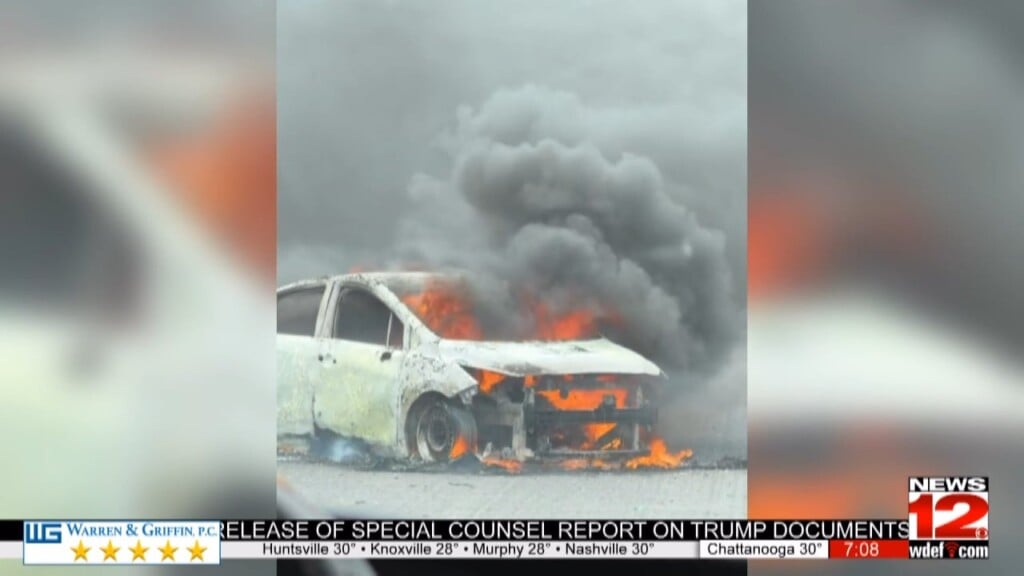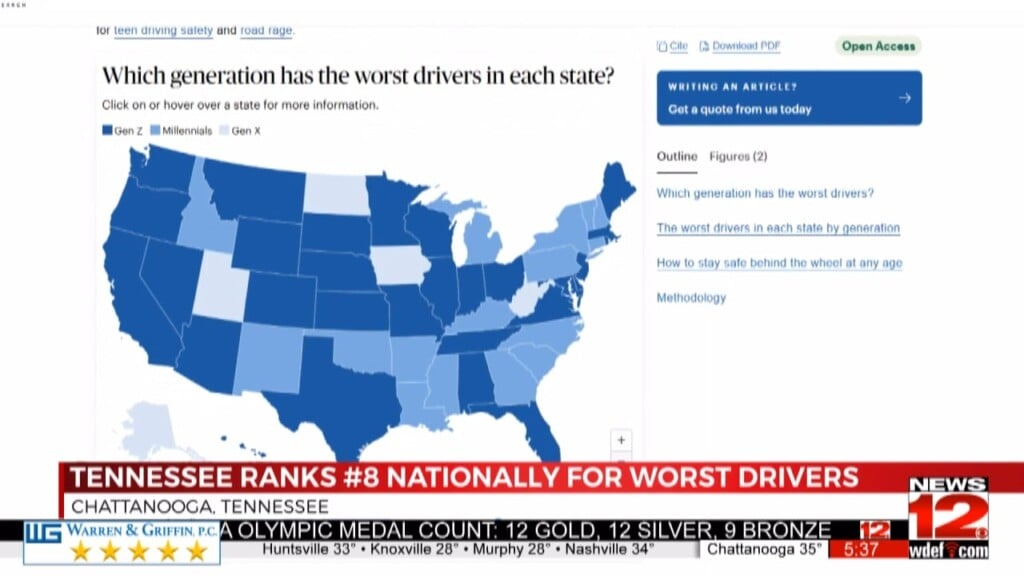Experts tell how Alabama’s bill could impact couples if passed
CHATTANOOGA, Tenn. (WDEF) – In Alabama, State Senator Smitherman has pre-filed a bill requiring couples to attend one conflict resolution class before getting married.
The proposed legislation, AL SB33, was developed in response to alarming domestic violence statistics.
Summary of AL SB33:
“The bill mandates that couples seeking to marry in Alabama must jointly complete a premarital conflict resolution class starting January 1, 2026. Both parties will need to provide verification of attendance when filing for their marriage license. The Administrative Office of Courts will establish the minimum requirements for these classes and develop the necessary verification forms.
The legislation amends existing marriage documentation requirements, making class attendance verification a mandatory element. Judges of probate must confirm that couples have completed the required class before recording their marriage.
The goal of this legislation is to reduce domestic violence rates and equip couples with communication and conflict management skills. The bill highlights troubling statistics:
•1 in 4 women and 1 in 7 men experience physical violence by an intimate partner.
•Over 15 million children in the U.S. live in households where intimate partner violence has occurred at least once in the past year.
The bill will take effect on October 1, 2025, providing time for couples and local authorities to prepare for implementation.”
This proposal has sparked a wide range of responses.
While the state refers to the session as a “conflict resolution class,” many religious organizations and private counseling practices call it “premarital counseling.”
Today, we asked local professionals how this might impact couples, for better or worse.
Karisa Kaye, a Marriage and Family Therapist, Certified Sex Therapist, and Trauma Therapist based in Chattanooga, explains why she supports this legislative move:
“I think it makes sense that the legislature is trying to do something proactive and productive about what’s happening in the marriage and family units across the country. Divorces are at an all-time high, and domestic violence is at an all-time high. It makes sense that the legislature is trying to figure out how to better set couples up for success, so I think it’s a great idea.”
During her counseling sessions, Kaye tells her clients that seeking therapy before marriage is a fantastic idea.
She believes that most people need tools to set themselves up for success.
Sometimes, after premarital counseling, couples decide it isn’t the right time for them to marry in their current season.
Tom Phillips, a pastor at New Heights Baptist Church in Georgia, shares a similar belief.
He encourages everyone considering marriage to first go through counseling.
“When I marry a couple, I tell them I won’t marry them unless we do premarital counseling. That’s about 12 sessions, and it’s my rule. Not everyone can or will do that, but I think it’s important. The Bible says, ‘In the multitude of counselors, there is safety.’ It also says, ‘If you’re going to build a house, build it on a rock, not on the sand, because it will crumble.’ For Christians, the rock is the Lord Jesus Christ.”
While Kaye and Phillips agree that premarital counseling is a valuable resource, Dr. Ramon Presson, a Marriage and Family Therapist in Nashville, holds a differing viewpoint:
“I’ve found premarital counseling to be particularly positive when it’s voluntary. Thirty years ago, many more weddings took place in churches, and churches often required premarital counseling. Couples had to attend sessions with the pastor or a counselor like me to get married at the church. However, I found it less effective when it was required.”
Dr. Presson explains that wedding planning can be overwhelming, and making counseling mandatory might cause couples to see it as a hindrance rather than a resource.
“When counseling is mandatory, couples often see the therapist as an obstacle rather than a helper. They might become protective, thinking, ‘What if he tries to talk us out of it?’ or ‘What if he finds something that makes him tell the pastor not to marry us?’”
Phillips, however, continues to urge couples to seek counseling as a way to learn more about themselves and the person they’re committing to.
“The Bible also says, ‘Before you go to war, consider the consequences,’ and ‘Before you build a building, make sure you have all the tools.’ I believe looking ahead and making wise decisions before marriage is essential.”
Kaye believes the reason for this bill is that legislators are trying to figure out how to slow down the rate of divorce and domestic violence, which has spiked since the pandemic.
“Americans don’t like being told what to do, but we are struggling as a society. Healthy societies start with healthy families, and healthy families start with healthy couples. If we can set couples up to do things better from the start, I think society as a whole has a greater chance of being healthy.”
Dr. Presson also notes that while he supports one-on-one couple’s therapy and believes it has a positive impact when done voluntarily, a state-mandated class might be too general to address each couple’s unique needs.
“We must ask: What is the best length of time, content, and delivery mechanism for premarital counseling? Matching the goals with appropriate content and timing is critical. If the goal is to reduce divorce rates or domestic violence, we need to ensure that the program aligns with those objectives.”
He explains that no one solution fits all, and a short, generalized class with a group of strangers may not resolve the core issues couples face.
“I think the issue with a class, whether it’s one hour or two hours, is that it’s inherently brief. While it might provide good information, the gravity and generality of it will naturally create limitations. What you won’t get with the educational model is the ability to help the couple specifically apply these principles to their unique situation. So, while we’re talking about conflict resolution, it may not address the needs of couples who are engaged, dating, or in other specific circumstances.”
While Kaye says something is better than nothing, she also expresses concerns about the curriculum and requirements for the class.
“When I work with couples in premarital counseling, we talk about topics they want to delve into. If bigger issues arise, we can address those with the right tools. The curriculum needs to include education on abuse and domestic violence, as these are critical conversations.”
Dr. Presson wraps up this conversation by noting that the majority of couples who struggle often return to the therapist who initially guided them, especially when they begin to encounter trouble down the road.
This is because the couple has built a trusting relationship with the professional.
Instead of feeling forced to attend something that’s supposed to feel like a resource, they are more likely to trust and confide in the professional who was there from the beginning.
He says that while he applauds the state for its efforts to curb divorce rates and domestic violence statistics, what the state is trying to implement is more akin to addressing issues after they occur.
Making this mandatory, he argues, doesn’t necessarily prevent problems from happening in the first place.
Phillips assures couples that conflict is a normal part of marriage but believes premarital counseling and conflict resolution classes can help couples make wiser decisions before they enter a lifelong commitment.
All three professionals agree that counseling and classes to address conflict are valuable resources.
However, their opinions differ on how these resources should be designed, delivered and implemented to the public.
We reached out to Senator Smitherman for comment but have not yet received a response.
If passed, the bill would go into effect on October 1, 2025.




